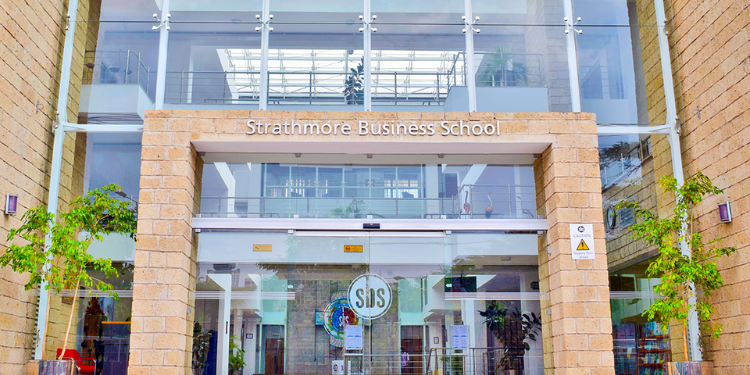Strathmore University began in 1961 as Strathmore College, an Advanced-level sixth-form college offering Science and Arts subjects. It was established by a group of professionals under the Strathmore Educational Trust, then a charitable trust.
The institution was the first in pre-independence Kenya to admit students of all races, religions, and social backgrounds. Saint Josemaría Escrivá, founder of Opus Dei, inspired and encouraged its establishment.
In March 1966, the college admitted its first batch of 25 Accountancy students, who studied alongside Sixth Form students in preparation for the UK-based Association of Chartered Certified Accountants (ACCA) examinations.
These students were sponsored by companies such as Shell East Africa, BAT (East Africa), and East African Breweries. At the time, Strathmore was unique as a post-Form 4 institution combining academic and professional courses.
By October 1982, demand from companies for professional training had grown, prompting the introduction of evening accountancy classes for 60 students sponsored by various firms.
In 1986, the Government of Kenya donated five acres of land in Ole Sangale Road, Madaraka Estate, following a request by the Trustees. The European Union and the Italian Government agreed to fund the construction of a co-educational campus offering management and accountancy courses.
Kianda College, run by the Kianda Foundation, partnered to run professional courses at the new Madaraka campus.
Strathmore University: Courses Offered, Fees, Location, and Campuses
Construction began in September 1989, and in January 1991, Strathmore opened an Information Technology Centre at its Lavington campus.
The centre offered computer courses leading to diplomas from the Institute for the Management of Information Systems.
A year later, in January 1992, the college launched a Distance Learning Centre for students unable to attend in-person classes.
In January 1993, Strathmore College merged with Kianda College and relocated to its current location in Madaraka Estate.
In August 2002, the Commission of Higher Education awarded Strathmore a Letter of Interim Authority to operate as a university with a Faculty of Commerce and a Faculty of Information Technology.
The first undergraduate students completed their degree courses in December 2004 and graduated in August 2005.
In June 2007, the Commission for Higher Education granted Strathmore University a charter, officially recognizing it as a fully-fledged university.
Intakes for the full-time programme are in April and June, while intakes for the evening programme are in May and September.
Also Read: Aga Khan University, Kenya: Courses Offered, Fees, Location, and Campuses
Today, Strathmore offers a wide range of undergraduate programmes, including:
- Bachelor of Science in Tourism Management (BTM)
- Bachelor of Science in Hospitality Management (BHM)
- Bachelor of Business Science: Financial Engineering (BBSFENG)
- Bachelor of Business Science: Financial Economics (BBSFE)
- Bachelor of Business Science: Actuarial Science (BBSACT)
- Bachelor of Science in Informatics and Computer Science (BICS)
- Bachelor of Business Information Technology (BBIT)
- Bachelor of Science in Computer Networks and Cyber Security (BCNS)
- Bachelor of Laws (LLB)
- Bachelor of Arts in Communication (BAC)
- Bachelor of Arts in International Studies
- Bachelor of Arts in Development Studies and Philosophy (BDP)
- Bachelor of Science in Supply Chain and Operations Management (BSCM)
- Bachelor of Financial Services (BFS)
- Bachelor of Science in Electrical and Electronics Engineering (BSEEE)
- Bachelor of Science in Statistics and Data Science (BScSDS)
Strathmore University Postgraduate Programmes
- Master of Science in Computing and Information Systems (MSc CIS)
- Master of Science in Information Technology (MSc IT)
- Master of Science in Statistical Science (MSc SS)
- Master of Science in Mathematical Finance and Risk Analytics (MSc MFRA)
- Master of Science in Biomathematics
- Master of Applied Philosophy and Ethics (MAPE)
- Master of Science in Education Management (MEM)
- Master of Laws (LLM)
- Master of Science in Information Systems Security (MSc ISS)
- Master of Management in Agribusiness (MMA)
- Master of Public Policy and Management (MPPM)
- Master of Science in Development Finance (MDF)
- Master of Business Administration – Healthcare Management (MBA-HCM)
- Executive Master of Business Administration (MBA for Executives)
- Master in Hospitality Business Management (MHBM)
- Master of Science in Data Science and Analytics (MSc DSA)
- Master of Science in Sustainable Energy Transitions (MSc SET)
- Master of Arts in Diplomacy, Intelligence and Security (MDIS)
- Master’s in Spectrum Management
- Master of Commerce (MCom)
- Master of Arts in International Relations (MAIR)
Diploma Programmes
- Diploma in Business Creation and Entrepreneurship (DE)
- Diploma in International Relations (DIR)
- Diploma in Business Management (DBM)
- Diploma in Business Information Technology (DBIT)
Doctoral Programmes
- PhD in Computer Science (PhD CS)
- Doctor of Laws (LLD)
- PhD in Mathematical Sciences
- PhD in Healthcare Management
- PhD in Business and Management
Also Read: United States International University-Africa: Courses Offered, Fees, Location and Campuses
Certificate Programs
Strathmore University also offers a variety of professional and certificate courses designed to equip learners with practical skills and industry-recognised qualifications.
These include Certified Public Accountants (CPA), Association of Chartered Certified Accountants (ACCAs), Chartered Financial Analysts (CFAs), Certified Information Systems Auditors (CISAs), Certified Information Security Managers (CISMs), and the Chartered Institute of Marketing (CIMs).
The university also provides specialised programmes such as the Teacher Enhancement Programme (TEP), Certificate in Data Science (ICDS), Certificate in Computer Applications (CCA), and International Computer Driving License (ICDL).
Creative and technical courses are available, including Film-making and Life Skills (FLS), Culinary Arts, Computer Hacking Forensics Investigator (CHFI), Certificate in Penetration Testing (ICPT), and Certified Ethical Hacking (CEH).
Fees for Various Programs
Undergraduate Programs
The cost for each undergraduate program varies depending on the course. Below is an overview of the annual tuition fees for some of the most popular undergraduate programs:
-
Business Administration: Ksh 450,000 per year
-
Law (LLB): Ksh 600,000 per year
-
Information Technology (IT): Ksh 500,000 per year
-
Hospitality and Hotel Management: Ksh 565,775
In addition to tuition fees, students incur extra charges, including:
-
Registration fee: Ksh 5,000 (one-time payment)
-
Library fee: Ksh 3,000 per year
-
Examination fee: Ksh 10,000 per semester
With these additional costs, the total annual expenditure for an undergraduate student ranges from approximately KES 460,000 to KES 620,000.
Postgraduate Programs
-
Master of Business Administration (MBA): Ksh 350,000 per semester
-
Master of Finance: Ksh 300,000 per semester
-
Master of Public Policy: Ksh 330,000 per semester
Postgraduate students may also incur additional expenses for research, course materials, and other academic resources, which contribute to the total cost of study.
Diploma and Certificate Courses
-
Diploma in Business Management: Ksh 250,000 per year
-
Certificate in Project Management: Ksh 180,000 per year
Follow our WhatsApp Channel and X Account for real-time news updates.
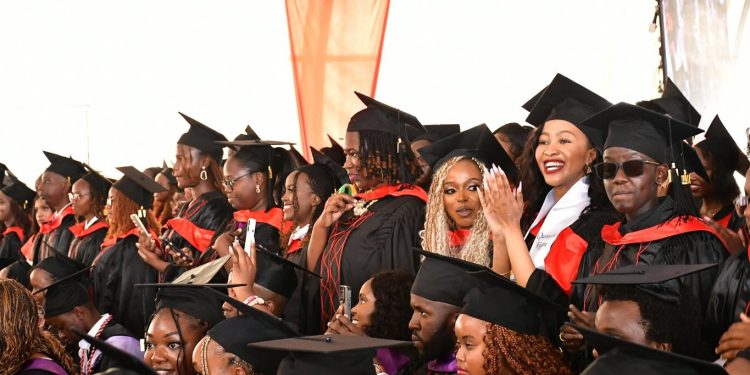
Strathmore University Graduates. Photo/ Strathmore University








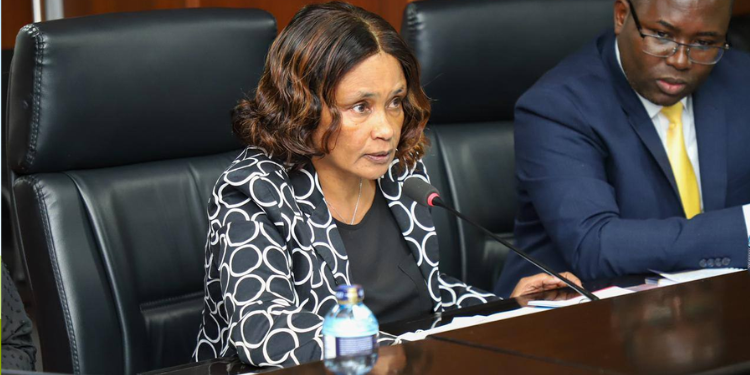











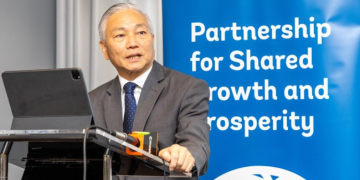
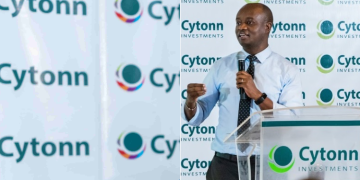
![Billions Each Top Kenyan Bank Has Made So Far In Profits This Year [List] Q3 2025 Results For Equity, Kcb, Co-Op, Absa And Other Banks]( https://thekenyatimescdn-ese7d3e7ghdnbfa9.z01.azurefd.net/prodimages/uploads/2025/11/C0-OP-KCB-Equity-Absa-360x180.png)















































